Dignity Cannot Be Annexed is the name of the article by citizen journalist / first deputy chairman of the Mejlis of the Crimean Tatar people / political prisoner of the Russian occupiers of Crimea, Nariman Dzhelyal, published by the American Los Angeles Review of Books.
Introducing the author, the editors of the American magazine write:
“Nariman Dzhelyal is a name we should all know. Dzhelyal is a Crimean Tatar—an ethnic Muslim minority indigenous to the Crimean Peninsula that has been on the receiving end of Vladimir Putin’s aggression since the occupation began in 2014. Members of the community and their supporters have faced countless cruelties: harassment, intimidation, threats, home searches, physical attacks, imprisonment, and enforced disappearances. Always standing in their corner and fighting against these cruelties has been Dzhelyal.
For this, Dzhelyal languishes in jail in Crimea, where he’s been since 2021. He was sentenced to 17 years on trumped-up charges of “sabotage,” and now, to make matters worse, authorities are threatening to move him somewhere remote. If this first deputy head of the Mejlis (a title best summarized as leader) gets lost in Russia’s penal system, the Crimean Tatars will be deprived of their most vocal advocate, and we too will be deprived of someone who boldly stands up to Putin’s tyranny….”
“A resident of Kyiv, Kurkov had a lot of things on his mind, but the plight of the Crimean Tatars seemed to fire him up the most. We kept in touch, and Kurkov later told me that Dzhelyal’s situation was getting desperate. He had written an essay from prison. Did I want to see it? The essay is remarkable. Dzhelyal has a clarity of mind that one would not expect from someone in such dire circumstances….”
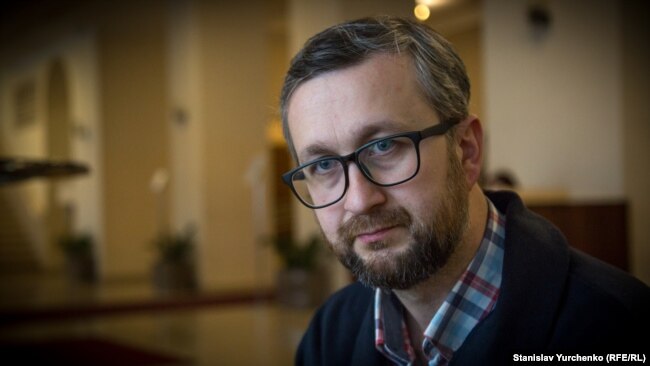
“I first heard Dzhelyal’s name last October when I had coffee with the Ukrainian writer Andrey Kurkov,” says American journalist Jemimah Steinfeld introducing Nariman Dzhelyal to the readers. “The quarterly magazine I edit, Index on Censorship, which focuses on challenges to free expression around the world, has worked with incarcerated dissidents since we debuted in 1972, and we often publish prison essays. The importance of such material cannot be overstated: it keeps a cause in the spotlight and ensures that those in prison know they’re not forgotten. And so, of course, I said I wanted to see the essay, and soon enough, thanks to Kurkov’s wife Elizabeth (a skilled translator), I had a copy in my hand.”
According to Jemimah Steinfeld, “Titled “Dignity Cannot Be Annexed,” the essay gives insight into Russia’s occupation of Crimea from the perspectives of those who are occupied and those doing the occupying (gleaned from conversations with prison guards as the author tries to understand their motivations). The tone is not self-pitying, though Dzhelyal would be forgiven if it were. Describing his current state, he draws comparisons with prisoners in Nazi concentration camps while still having the perspective and humility to say that his lot is not as bad.”
As Dzhelyal notes, we cannot say what tomorrow brings. And that is a fact he takes solace in. “But if you would allow me to speculate for a moment, I would say that Dzhelyal is likely to be a future Václav Havel—the Czech playwright, essayist, and political prisoner who played an instrumental role in the Velvet Revolution and became the first president of an independent Czech Republic—a global statesman-in-waiting who will be integral in building a post-Putin order. It’s nothing short of a privilege that we could publish his essay (an excerpt from which appears below) in our spring 2023 issue, and nothing short of a travesty that these eloquent words were written in prison…,” writes Steinfeld.
In his essay, Nariman Dzhelyal writes:
“You were warned!” said a strong, rough voice.
A few hours after the search of my house and my arrest, I was sitting on a chair—handcuffed, with a bag over my head—in a basement, no one knows where.
“About what?”
“Not to go to the Crimean Platform.”
There it was! Finally, after a rather lengthy conversation about the gas pipeline explosion and my alleged participation in it, I finally heard the real reason for my arrest. Up to that point, the conversation had been so outlandish, the statements so far-fetched, that I kept waiting for the main point to be voiced.
My attendance at the international summit in Kyiv was certainly not the only reason for my arrest. But more on that later. It was necessary to go to the Crimean Platform, although the risk was higher that year than ever before. The Russian leadership reacted extremely sharply to this event. It was obvious that activists who dared to go from Crimea to Kyiv would attract some serious attention.
Of course, the platform would have taken place without us. The presence at the summit of a handful of people who had come directly from occupied Crimea—formal representatives of the occupied peninsula, living witnesses of what was happening there, participants in peaceful resistance—may have remained unappreciated then, but it would acquire significance later. The Kremlin was well aware of this significance and, therefore, did not want anyone to go. We were tailed until we had left Crimea. We were detained on the road, at the border checkpoint where we had a stilted conversation with the border guards.
No one directly said: “Don’t go! You’ll regret it!” But apparently, the six-hour grilling was the warning I was now being reminded about. It didn’t stop me.
I had to go for another reason as well. Since 2014, fear had spread throughout Crimea. Using administrative, legislative, and informational methods, all residents of Crimea have been taught to refrain from any actions that are not sanctioned by the state, and under no circumstances to go beyond the limits of permitted behavior. As people succumb to these rigid taboos, they restrain themselves, construct barriers, and isolate themselves. Free civic activity, although it had not completely disappeared, had sharply declined, acquiring a sporadic and fragmented character. It was impossible to remain indifferent to this process. People needed to see examples of different behavior. Providing such examples was dangerous in the conditions of occupation, but it could inspire hope.”
Nariman Dzhelyal’s attitude to the situation in Crimea is the following:
“Few realize that we have actually ended up in a prison, in a kind of concentration camp for the 21st century. Its fences are hidden, camouflaged by new schools, roads, bus stops, cranes towering over new building sites, etc. Yet it is a concentration camp with strict rules and cruel guards—where the loyal get treats and the disobedient are punished. In a concentration camp, the goal of the authorities is to turn everyone into a faceless, homogeneous mass, absorbing those who disagree or resist… In a concentration camp, the goal of the authorities is to turn everyone into a faceless, homogeneous mass, absorbing those who disagree or resist … We went to the summit so that people could see that it is possible to overcome your fear, to act by your principles and beliefs. Let cautious folk consider us fools! Crimea has turned into a concentration camp—a hybrid concentration camp, with the illusion of free life…”
NUJU Information Service

 THE NATIONAL UNION OF
JOURNALISTS OF UKRAINE
THE NATIONAL UNION OF
JOURNALISTS OF UKRAINE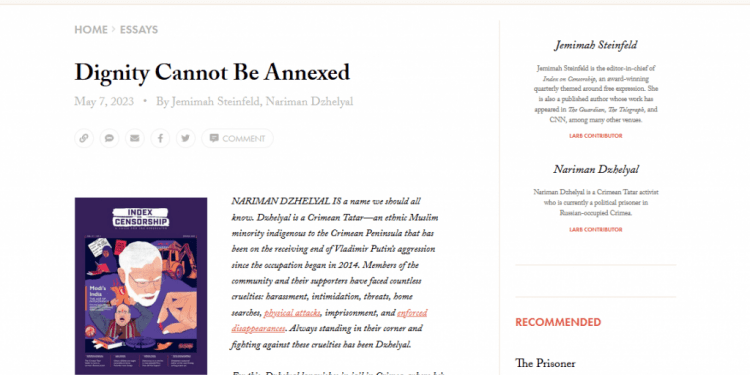
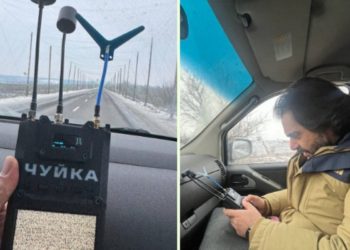
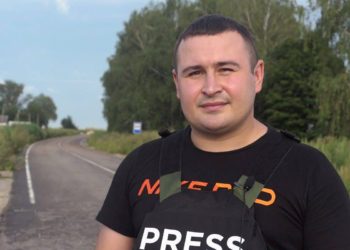
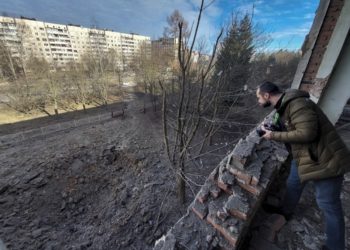













Discussion about this post